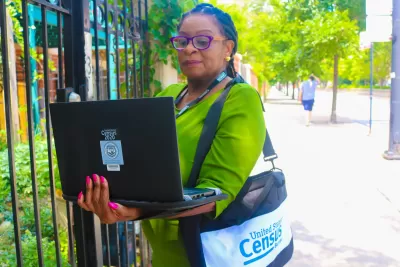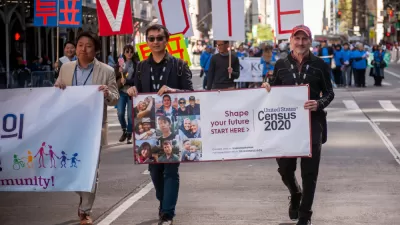An undercount is likely this year, particularly in communities that are traditionally underrepresented. As a result, cities will not have access to crucial federal funds over the next decade.

The census deadline is approaching, and it could be devastating for cities across the country if people are not counted.
"What’s at stake is both political representation and a share of the trillions of federal dollars over the next decade that will be distributed based on population. An undercount in communities that have already been disproportionately affected by the coronavirus could exacerbate the very inequities the virus itself has exposed," report Nolan D. McCaskill, Alexander Nieves, and Michelle Bocanegra.
The pandemic, the economic downturn, and social unrest have made the situation extremely difficult for mayors, who now have a multitude of crises to contend with and less time to make sure the census is carried out properly. The difficulties have only been compounded by a shortened timeline and the Trump administration’s ongoing attack on immigrants.
"Advocacy groups focused on the census warn that historically undercounted communities — low-income, immigrant and rural communities, communities of color and American Indian and tribal communities — are poised for severe undercounts this year," say McCaskill, Nieves, and Bocanegra.
Cities and states had planned engagement and outreach efforts for years, but the pandemic has sidelined those initiatives. "Mayors, nonprofits and other census advocates have decried the Trump administration’s new deadline to complete census data collection. The timeline was extended to Oct. 31 due to the pandemic, but then pushed up to Sept. 30 earlier this month," they note.
FULL STORY: Cities risk losing out on trillions in federal aid as census deadline looms

Maui's Vacation Rental Debate Turns Ugly
Verbal attacks, misinformation campaigns and fistfights plague a high-stakes debate to convert thousands of vacation rentals into long-term housing.

Planetizen Federal Action Tracker
A weekly monitor of how Trump’s orders and actions are impacting planners and planning in America.

In Urban Planning, AI Prompting Could be the New Design Thinking
Creativity has long been key to great urban design. What if we see AI as our new creative partner?

Massachusetts Budget Helps Close MBTA Budget Gap
The budget signed by Gov. Maura Healey includes $470 million in MBTA funding for the next fiscal year.

Milwaukee Launches Vision Zero Plan
Seven years after the city signed its Complete Streets Policy, the city is doubling down on its efforts to eliminate traffic deaths.

Portland Raises Parking Fees to Pay for Street Maintenance
The city is struggling to bridge a massive budget gap at the Bureau of Transportation, which largely depleted its reserves during the Civd-19 pandemic.
Urban Design for Planners 1: Software Tools
This six-course series explores essential urban design concepts using open source software and equips planners with the tools they need to participate fully in the urban design process.
Planning for Universal Design
Learn the tools for implementing Universal Design in planning regulations.
Gallatin County Department of Planning & Community Development
Heyer Gruel & Associates PA
JM Goldson LLC
City of Camden Redevelopment Agency
City of Astoria
Transportation Research & Education Center (TREC) at Portland State University
Jefferson Parish Government
Camden Redevelopment Agency
City of Claremont





























